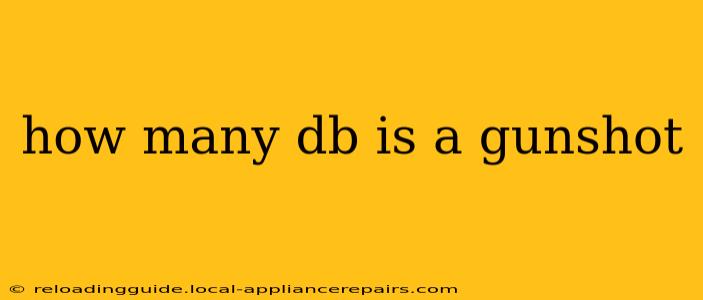How Loud is a Gunshot? Decibel Levels and Hearing Safety
The sound of a gunshot is incredibly loud, far exceeding levels safe for human hearing. But pinning down a precise decibel (dB) level is tricky. The intensity varies dramatically depending on several factors:
Factors Affecting Gunshot Loudness:
- Type of firearm: A small caliber pistol will produce a significantly lower sound pressure level than a high-powered rifle. The ammunition also plays a crucial role; different cartridges generate different levels of noise.
- Distance from the firearm: Sound intensity decreases rapidly with distance. Standing close to the muzzle will expose you to drastically higher dB levels than standing further away.
- Surrounding environment: The acoustic properties of the environment—whether it's an open field, a confined space, or an urban area—influence how the sound wave propagates and the resulting dB level at a given distance. Reflections off surfaces can increase the perceived loudness.
- Hearing protection: Wearing hearing protection, such as earplugs or muffs, will significantly reduce the dB level reaching your eardrums.
Typical Decibel Ranges:
While a precise number is impossible, gunshot sounds generally range from 140 to 175 dB. To put this in perspective:
- 140 dB: Similar to a jet engine taking off at close range. This is already the threshold of pain for human hearing. Prolonged exposure at this level can cause permanent hearing damage.
- 175 dB: This is an extremely loud sound, potentially causing immediate and irreversible hearing loss. Some high-powered firearms might reach or even exceed this level at close range.
The Dangers of Gunshot Noise:
Even brief exposure to sounds exceeding 140 dB can lead to:
- Temporary or permanent hearing loss: Noise-induced hearing loss (NIHL) is a serious condition that can impact quality of life.
- Tinnitus: A persistent ringing, buzzing, or hissing sound in the ears.
- Hyperacusis: Increased sensitivity to sounds that are normally tolerable.
Protecting Your Hearing:
If you're around firearms, hearing protection is absolutely essential. Always wear appropriate earplugs or muffs, rated for noise reduction rating (NRR) appropriate to the environment and firearms used. This is crucial regardless of whether you're shooting or simply observing.
Conclusion:
While a specific dB level for a gunshot isn't universally applicable, it's safe to say that the sound is extremely loud and potentially hazardous to hearing. Prioritizing hearing protection is paramount whenever firearms are involved, mitigating the risks of permanent hearing damage and other auditory health issues. Always remember to consult with experts for specific safety recommendations in relation to particular firearm types and scenarios.

